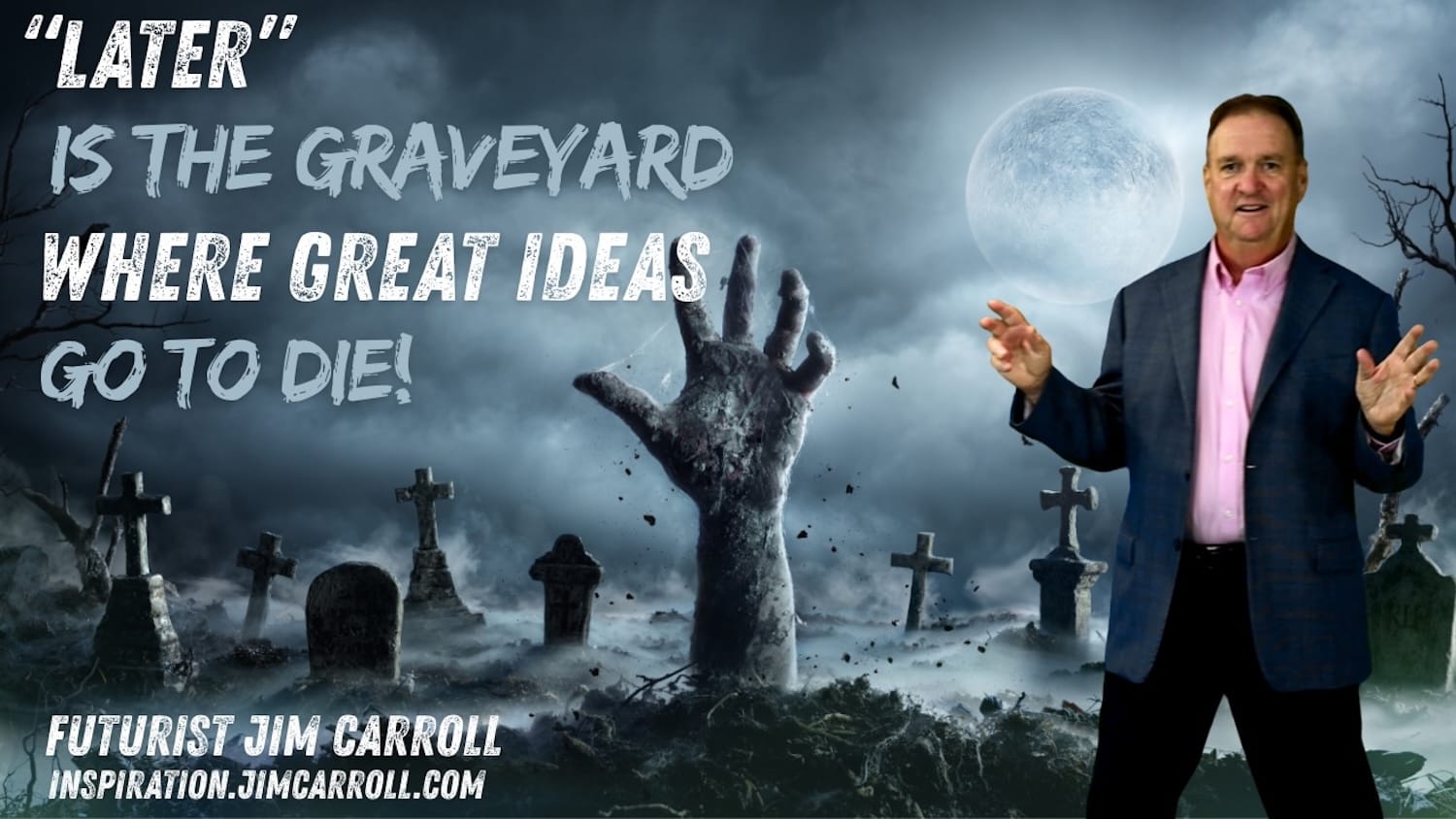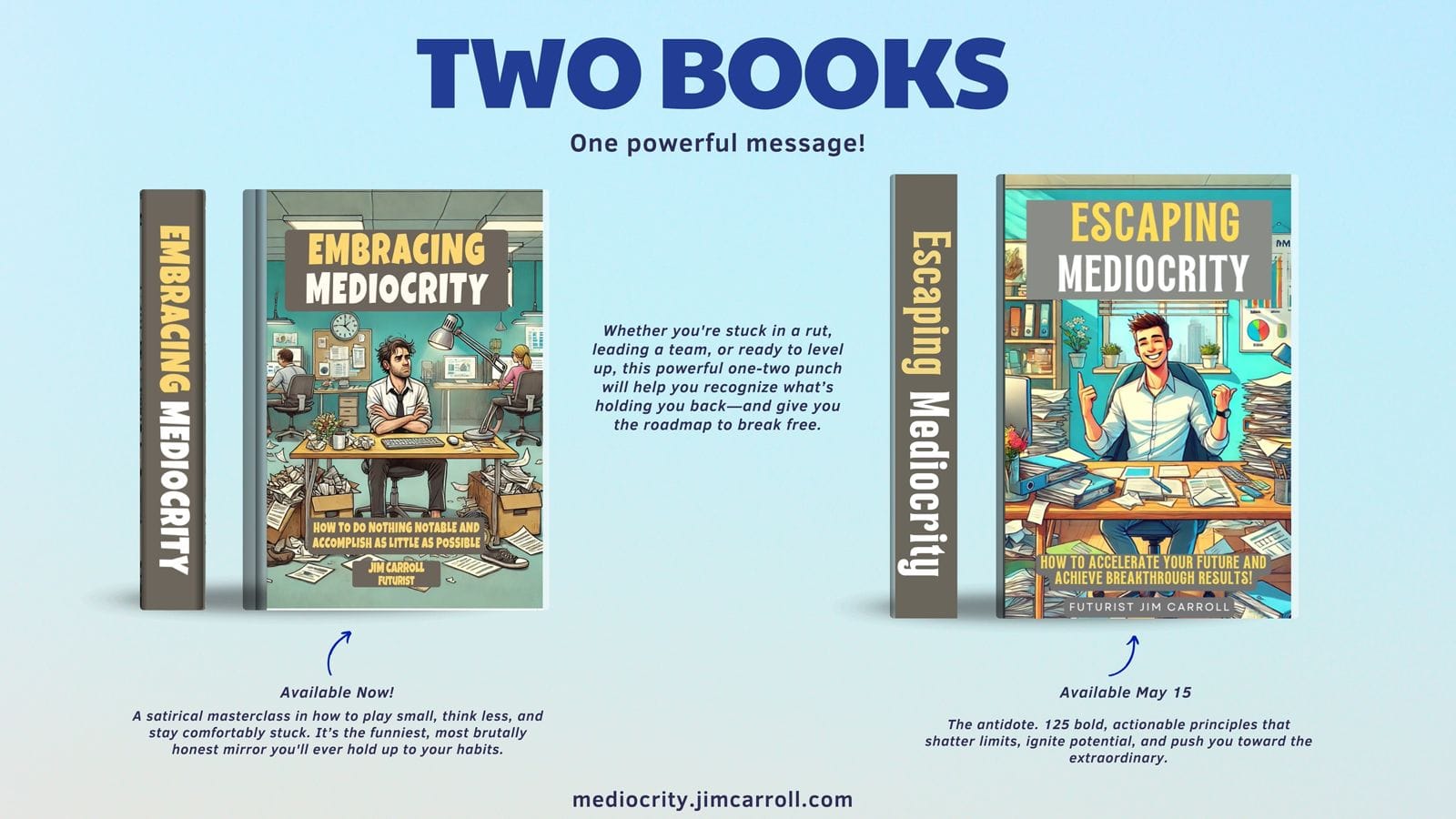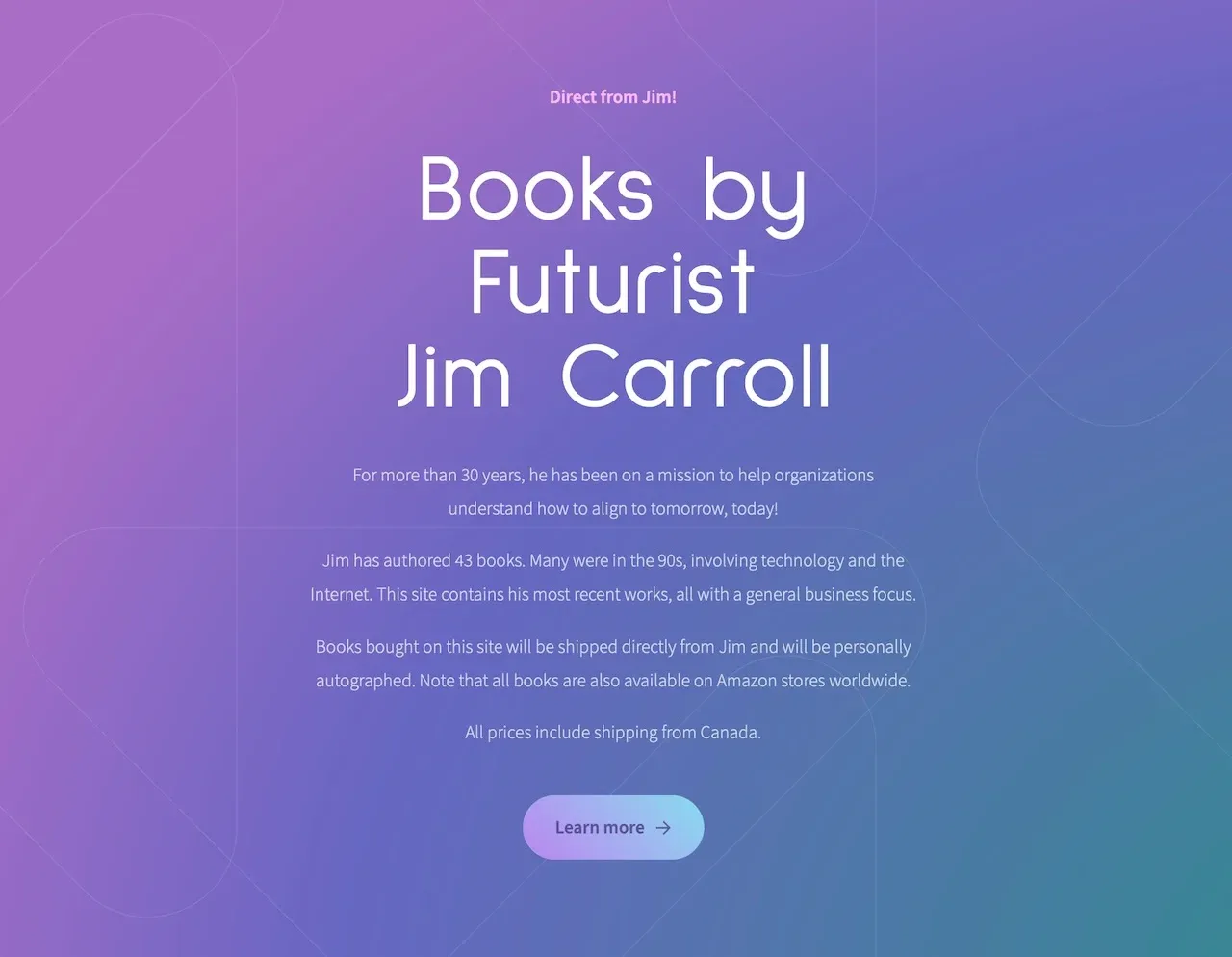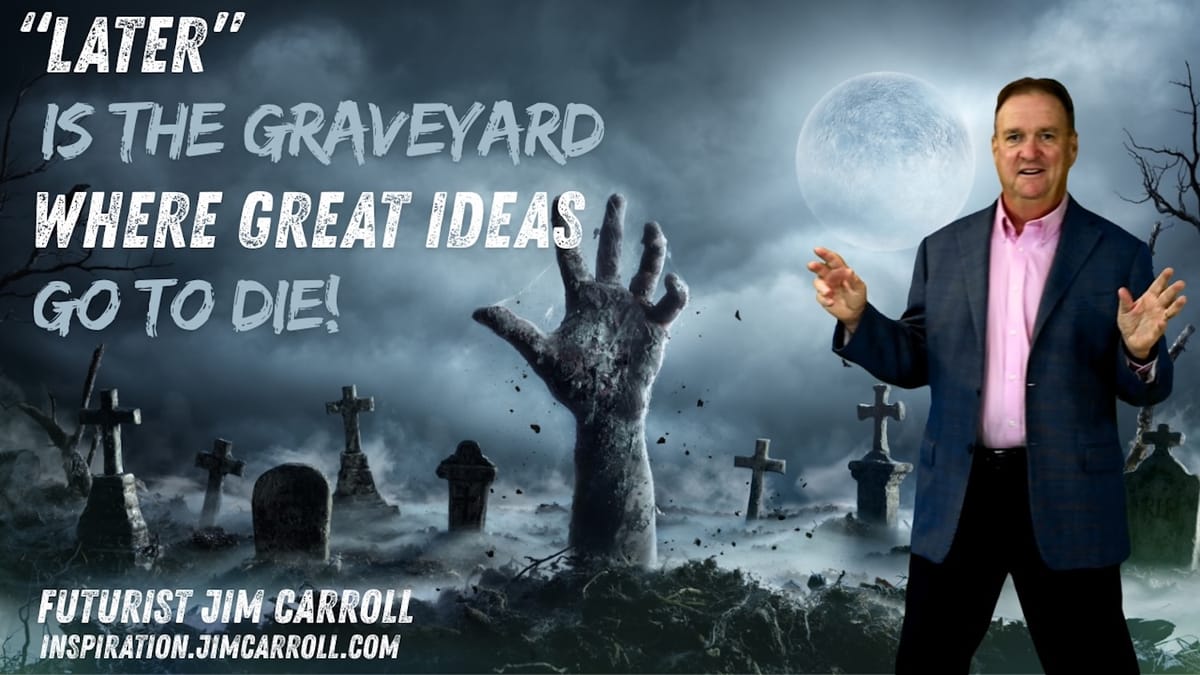“‘Later’ is the graveyard where great ideas go to die!” — Futurist Jim Carroll

I continue to get a great reaction from folks who have bought copies of two of my books, Embracing Mediocrity and Escaping Mediocrity - so much so that in the fall, I'm going to make it a trilogy when I pull together the third book, Eradicating Mediocrity!
There's a reason I wrote both books (and why I will write the third) - I've seen a lot of innovation efforts go off the rails, and I've documented that in all the various books I wrote along the way. These two books helped, in a fun way, what I've learned, and what we should do about it. The fact is, I've spent over 30 years on stages around the world, from NASA to Disney, talking about the future. And if there's one timeless truth I've observed, it's this: People who say "I'll do it tomorrow" never arrive there in good shape.
That isn't just a catchy phrase; it's a fundamental barrier to success in the high-velocity economy we live in. Delay is a decision. Inaction is a strategy. And both are recipes for failure. Need more recipes? Dive into the books like many others have.

The theme I cover in the books isn't something new - it's battle-tested insight covered in many of my books, many of which you can find over at books.by.jimcarroll.com

I dug into some of these past works to pick up on where I've covered this reality, and it's been a key theme!
In my book, What I Learned From Frogs in Texas, I call this mindset "aggressive indecision," an attitude where 'doing nothing' is an adequate response to change. It's the most dangerous mindset an organization or an individual can have. Why? Because the future doesn't wait. While you're busy planning for tomorrow, the trends that will define your success are happening right now. Putting off action is like seeing a tidal wave on the horizon and deciding you'll learn to swim tomorrow. By the time tomorrow comes, you're already underwater.
The entire Frog's book was based on the peril of postponement. In the book, I tell the story of frogs who were so focused on the short-term threat of seagulls that they didn't notice the long-term, far more lethal threat of cars leaving the conference parking lot. It got ugly, fast. That's what happens when you put off big decisions. You focus on today's trivial "fires" while the massive, transformative trends that will redefine your industry are barreling down on you. As I wrote, "they could have seen it coming if only they had taken the time to look beyond 'right now'".
In my book "Now What?", I speak about how many can get stuck in 'economic grief.' Change, whether it's a career shift or a market disruption, can feel like a loss. In that book, I talk about the need to accelerate through the stages of shock, denial, and anger. The goal is acceptance. As I noted, "the faster you get to acceptance, the quicker you can reinvent". People who say "I'll do it tomorrow" are stuck in denial, wishing for a past that's already gone instead of building a future that's ripe with opportunity. That's a theme that I dig into in my new book, Dancing in the Rain, as well.
The fact is, right now is the only time for innovation in a fast world. This is the core message of my book, Ready, Set, Done. We live in a world of accelerating business cycles, collapsing product lifecycles, and instant idea transmission. As I put it, "your ability to adapt, change, and evolve, through a constant flood of new ideas, that will define your potential for success". Waiting until tomorrow is like showing up to a Formula 1 race with a horse and buggy. In that context, you should know that action beats a perfect plan. Too many people and organizations are paralyzed because they're waiting for the perfect strategy. But in a world of constant change, the perfect plan doesn't exist. It's far better to act.
In my book, Think Big, Start Small, Scale Fast!, I stress this exact point: "In the absence of clarity, taking initiative today is significantly better than finding a perfect plan tomorrow!". That's the essence of "start small"—run experiments, learn from them, and build experiential capital. The decision to act today is fueled by optimism. It's the core belief that you can shape your future. And in Now What?, I describe optimism as the essential ingredient for reinvention: "My optimism is my oxygen, the fuel for my future, the pathway to my purpose". Pessimism and procrastination go hand-in-hand. An optimistic, forward-looking mindset provides the energy needed to take action in the face of uncertainty.
And there is my theme that the future belongs to those who are fast. It belongs to the agile, the adaptable, and the action-oriented. As I wrote in the book by that name, The Future Belongs to Those Who Are Fast, "Past success doesn't guarantee a future of winning. Resting on one's laurels is perhaps the best method to place yourself at the greatest risk in the future".
And finally, there is Dancing in the Rain: How Bold Leaders Grow Stronger in Stormy Times. Companies, ideas, and entire leadership teams die in economic downturns and during periods of great uncertainty because they freeze. The book examines what successful organizations do instead. You need that book RIGHT NOW.
So what should you do?
Don't let aggressive indecision define your fate.
Stop waiting for the perfect moment.
Take the moment you have and make it the perfect time to start.
Because if you keep saying "I'll do it tomorrow," you'll find that the future has already happened without you.
Futurist Jim Carroll tries to commit to action as often as he can.

